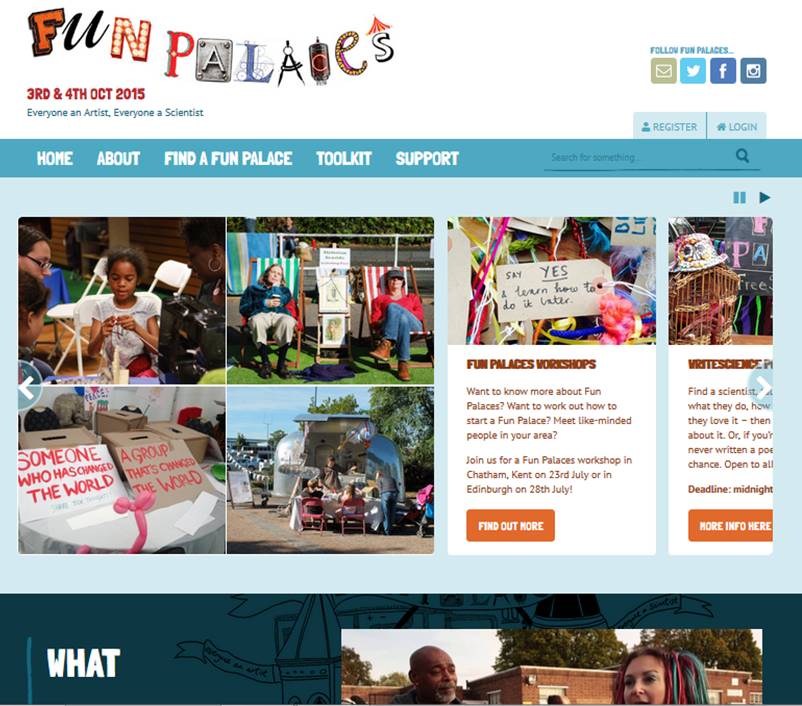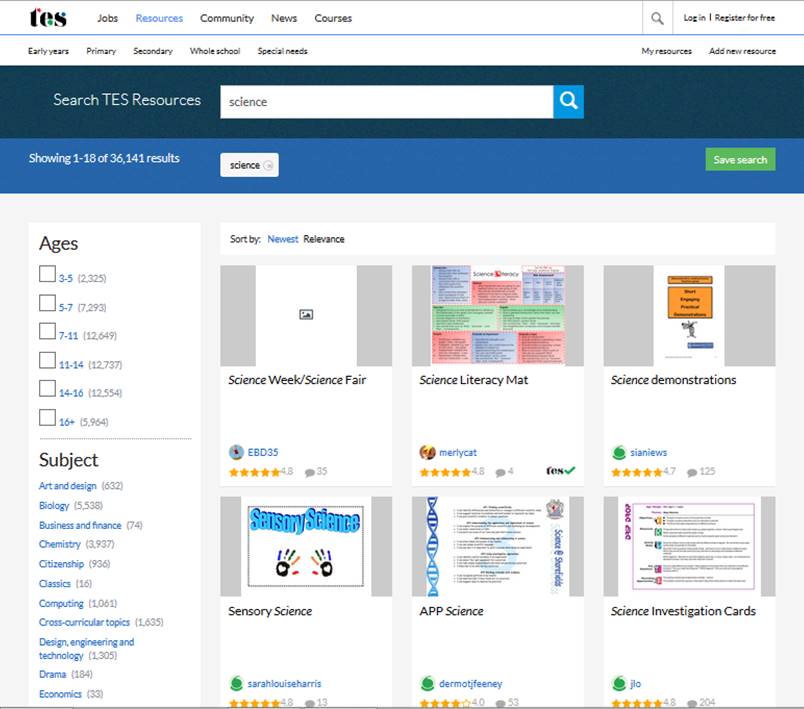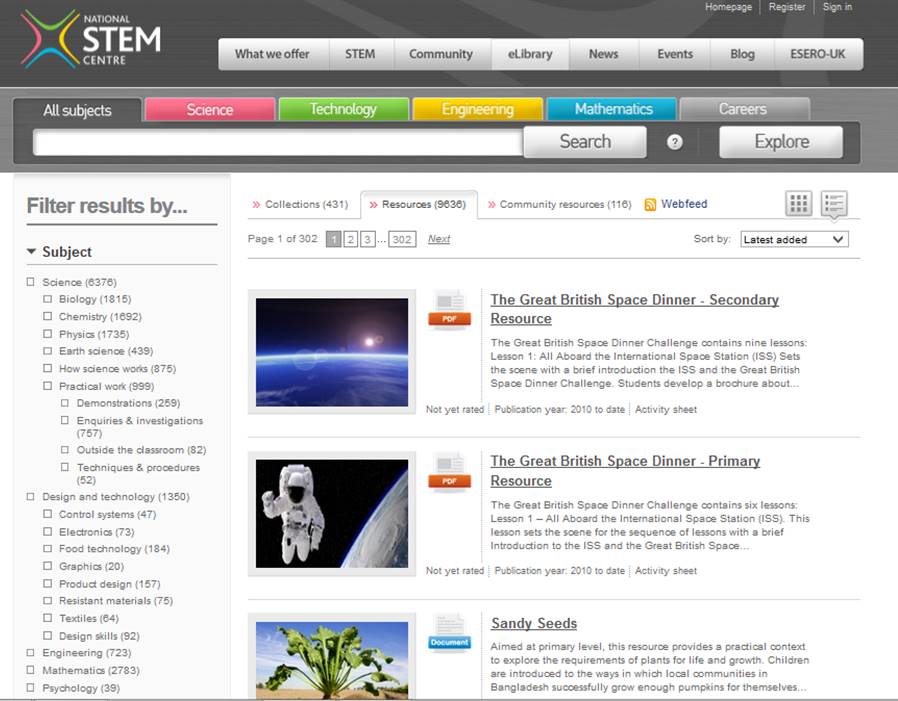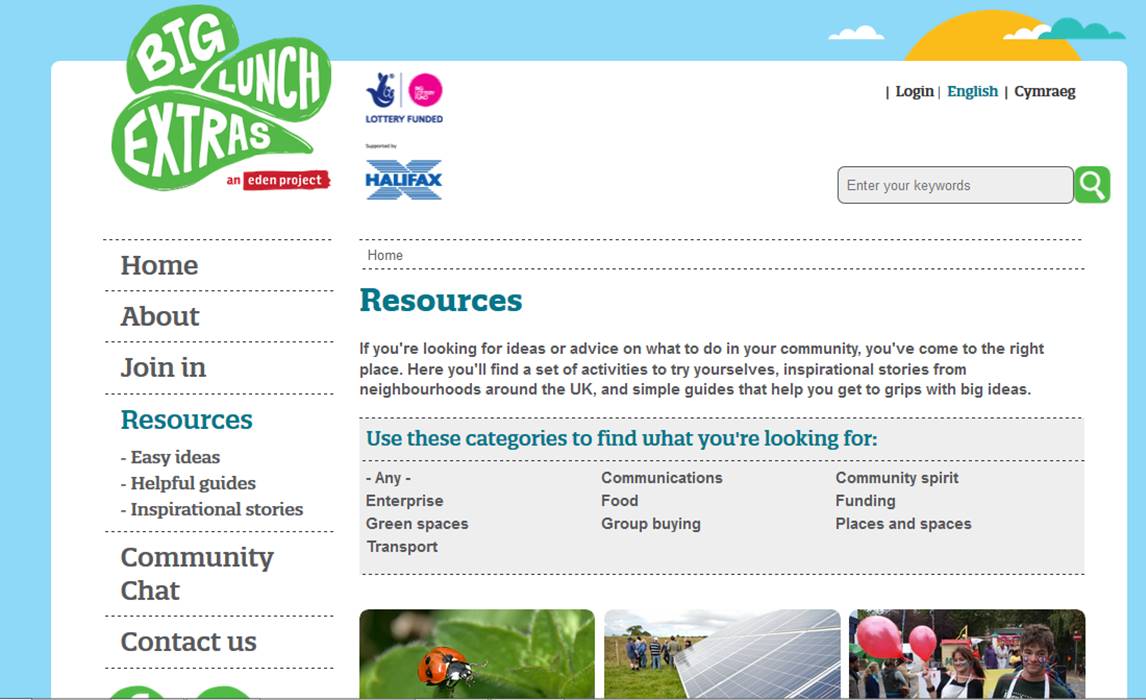To access, please go to: http://www.at-bristol.org.uk/
https://www.at-bristol.org.uk/education/resources
https://www.stem.org.uk/elibrary/collection/3120/citizen-science
Fun Palaces is a project promoting self-generating, self-funding and self-organising ways to engage with the public in a creative way. Their website provides guidelines, templates, toolkits, risk assessment forms and anything one needs to start their own Fun Palace.
 For more information, please visit: http://funpalaces.co.uk/
For more information, please visit: http://funpalaces.co.uk/
TES is a worldwide online community of teachers. The website features toolkits and resources to organise STEM based events for different age and interest groups.
 For more information, please visit: https://www.tes.co.uk/teaching-resources
For more information, please visit: https://www.tes.co.uk/teaching-resources
The National STEM Centre website features e-Library, a repository for events and activities for different ages and interest groups.
 For more information, please visit: http://www.nationalstemcentre.org.uk/elibrary/
For more information, please visit: http://www.nationalstemcentre.org.uk/elibrary/
The Big Lunch Extras website features ideas and advice on what to do in your local community, a set of activities to try , inspirational stories from neighbourhoods around the UK, and simple guides to help you get to grips with big ideas.
 For more information, visit: http://www.biglunchextras.com
For more information, visit: http://www.biglunchextras.com
Public Understanding of Science is a fully peer reviewed, quarterly international journal covering all aspects of the inter-relationships between science (including technology and medicine) and the public. Topics Covered Include: popular representations of science, scientific and para-scientific belief systems, science in schools, history of science, education of popular science, science and the media.
For more information, please visit: http://pus.sagepub.com/
PiF has launched a new Toolkit designed to support anyone involved or interested in the creation of high quality health information. It identifies the best practice in creating heath information that works, and sets this alongside the evidence, practical tools and resources, and case studies showing how different organisations have approached developing their health information.
The Toolkit is presented in four sections:
Each section breaks down best practice statements into key steps with accompanying useful resources.
You can read about how they developed the Toolkit and the evidence behind it here. A pdf and printable version of the best practice statements and key steps can be viewed here.